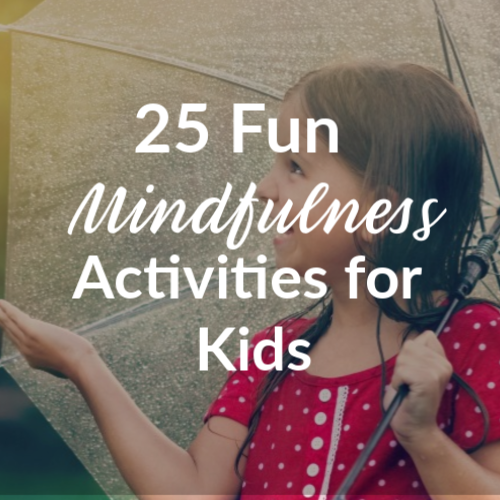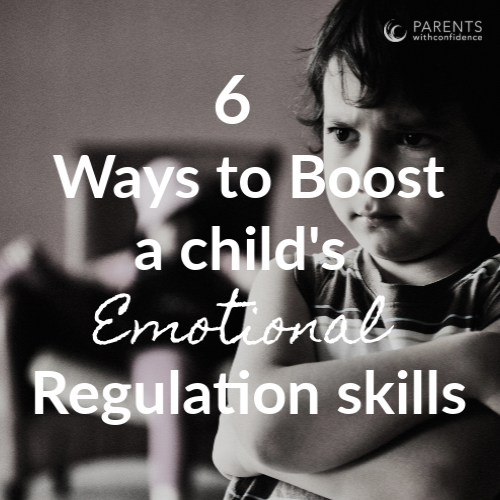6 Ways Parents Unknowingly Stifle Their Child’s Social and Emotional Growth
Inside: Many parents unknowingly negatively impact their child’s developing social and emotional growth through common behaviors and situations.

I could tell by the look on her face as she got into the van after school that something had happened.
My 8-year-old sat quietly in the back until we were pulling into our driveway. Then the floodgates opened.
“I had the worst day mom. We were passing around a puppet in class, and Lucy wouldn’t hand it to me even though the teacher kept telling her to. I finally asked her to give it to me, but then she whispered in my ear that now she would never invite me to her birthday party ever”.
A tear rolled down her cheek as my sensitive girl described her heartbreak.
It is in these very moments that I wish there were a positive parenting guide to carry around in my back pocket. Despite having the knowledge we should let our child feel the hard things of life, and work their way through them independently, our protective instincts surge, “suffering child! suffering child! Send in reinforcements!”
How parents interfere with their child’s emotional growth
We are biologically programmed to have protective instincts with our child, but when it comes to protecting them, when does protection become stifling to their social and emotional development?
This is one of the many grey areas of parenting, but I can tell you navigating our way through starts with recognizing our own emotions and triggers when our child is struggling and how they enter into the equation of our reaction and response.
I did not do a great job that day standing in our garage as I impulsively reacted to my daughter’s story, “Why would you even want to go to the birthday party of someone that would treat you that way?”
Whoops. As soon as the words left my mouth I knew. I was mad she was hurting. I was scared she would become friends with the ‘mean girls’ and maybe even become one herself (parents have lots of fears lurking beneath the surface).
The protective and loving instincts we have as parents are so strong, they can often lead us into actions indicating that we are fully responsible for solving our child’s problems.
When our own unattended emotions from past or present mix with our best intentions to help and protect our child, the combination can be one that hinders emotional development and our child’s opportunity to develop resilience.
It’s hard to know where to start reflecting, so here are six scenario’s that commonly trip up even the most well-meaning and intentional parents.
Six ways parents unknowingly stifle their child’s emotional development.
1. Consistently over-scheduling your child.
You want your child to be athletic and popular, and if they don’t start basketball by first grade, they’ll never be ready for the club team! Your good intentions are translated into exhaustion on their part, resentment on yours, and the always resounding question of “When was the last time we had a family dinner together?” If it is more stress than it’s worth, it probably isn’t in your child’s best interest.
If it is more stress than it’s worth, it probably isn’t in your child’s best interest.
2. Doing their responsibilities for them.
You know that school is the foundation for future success and are determined that your child put their best foot forward. It is easy for these good intentions regarding school work to result in parents taking it over. By taking the reins on your child’s schoolwork, you are communicating to them that they are not capable of doing it themselves. It is also teaching them learned helplessness, which leads to the logic of “Why even bother trying when I know Mom will end up doing it for me anyway?”
Related read >> Please Know this one Important Truth before DISCIPLINING your Child.
3. Not letting them resolve their own conflicts.
You’ve read up on positive communication and lord knows you experienced plenty of ‘girl drama’ in your own childhood. So why wouldn’t you step in and give your daughter eight-point instructions on how to approach the girl who’s been teasing her in art class?
Because in doing so, she is robbed of the opportunity to learn how to work through social conflict on her own. If your child opens a dialogue, be a good listener and ask her what approach she’d like to try first. This will go far to develop problem-solving skills that will prepare them for the other inevitable relationship struggles down the road.

Related read >> Anger Management for Kids- A Therapist’s no Fail Guide to Calm
4. Being overly critical.
You so desperately want your child to do things the “right” way, you sometimes (or all the time) find yourself involuntarily “imparting” knowledge through lecturing and criticism. Your son came home to vent his embarrassment at school when he forgot his math homework at home and he was called out for it in class. Internal panic signals telling you that your son is destined to become a lifelong slacker provoke you to rake him over the coals for the next 10 minutes.
The problem is that he has already learned his lesson from the natural (and more effective) consequence of embarrassment that life delivered to him earlier. This excessive criticism will not only create unnecessary anxiety for your son (because you gave him yours) but will also lead to the tendency for him to become overly critical of himself.
5. Making their choices for them.
You know your child best, so why wouldn’t you take every decision of their day into your own hands? After all, you are sure your daughter would be happier in ballet class as opposed to karate (despite her requesting it on multiple occasions). When a child is old enough, giving them room to make some of their own choices will lead to confidence and self-discovery. Allowing your child to choose what they would like to participate in will lead to increased dedication and commitment to the activity.
Related Read >> How to Raise an Emotionally Intelligent Child that will Succeed in Life
6. Being overly protective.
You so desperately love your child and, therefore, naturally want to protect them from the disappointment and heartbreak in life. The problem is that you’re protecting them so entirely that they are unable to experience disappointment, fear, frustration, or pain. You are certainly your child’s protector for the big things in life, but remember that one day they will need to get by on their own. Many times it’s the most painful lessons in life that give us the skills, self-knowledge, and resilience to cope with life’s inevitable ups and downs.
Allowing our child their own path to emotional growth and resilience.
It is certainly not an easy endeavor to find the elusive sweet spot between nurturing and supporting your child and stifling opportunities for emotional growth and developing resilience.
Once my stress hormones peaked and reactivity subsided, I continued the conversation with my daughter, “I’m sorry to hear today was stressful. I know you are very capable of deciding what birthdays you’d like to go to. Is there any way I can help?”
A great place to start in supporting the healthy growth of our child’s social and emotional skills is cultivating the awareness that we as parents don’t hold our child’s destiny in our own hands.
We are blessed to be their guide, but we must allow them to forge their own path in life if our wish is for them to flourish. Luckily, life has a way of presenting its key wisdoms and lessons to our children, if we can step back enough to let it.
Other articles you’d enjoy:
A version of this article appeared on Scary Mommy.










